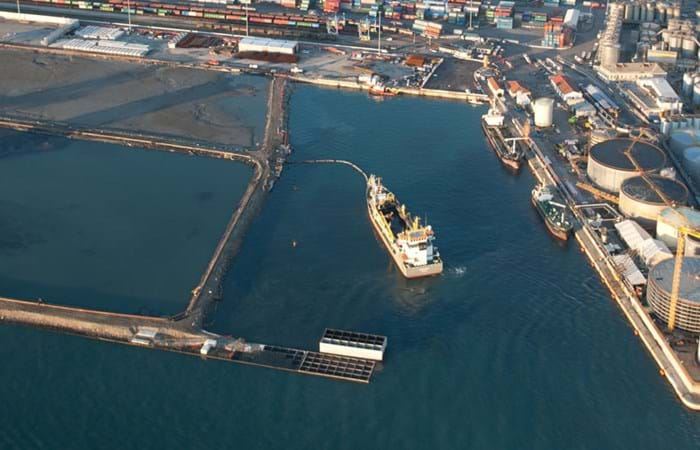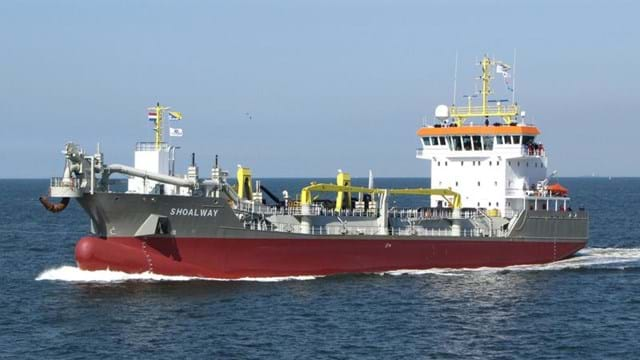The deepening and extension of the port of Genoa is needed to accommodate the larger container vessels and the ferries of MSC. The client is the Port Authority of Genoa. The project is being executed by Boskalis Italia S.r.l. in a joint venture with Tecnis S.p.A., an Italian company that is responsible for the construction work.
Scope
The scope of the project includes building the new container terminal at Calata Bettolo using material obtained by dredging from the deepening of the inner basins of the Port of Genoa. The work has been split up into five phases. The project started in 2009 and will be completed in early 2014.
- Working on the first reclamation area A1 from July 2009 to September 2009.
- Construction of the walls around area B1, work continues on filling up area A1, February 2010 to August 2010.
- Completion of reclamation areas A1 and B1, November 2010 to late January 2011.
- Deepening of the existing turning basin from June 2012 to November 2012.
- Deepening the access channel and reclaiming area C1, the last part of Calata Bettolo, early 2014.
Environmental challenges
An important part of the project consisted of dredging 2.2 million m3 of contaminated sludge from various basins in the port of Genoa and the Porto Petroli of Multedo, and land reclamation for the construction of a container terminal in Calata Bettolo. To prevent the contamination of the groundwater and the port basins, the dredged material was moved to three large basins, each of which were lined with 2-mm-thick HDPE Geomembrane.

